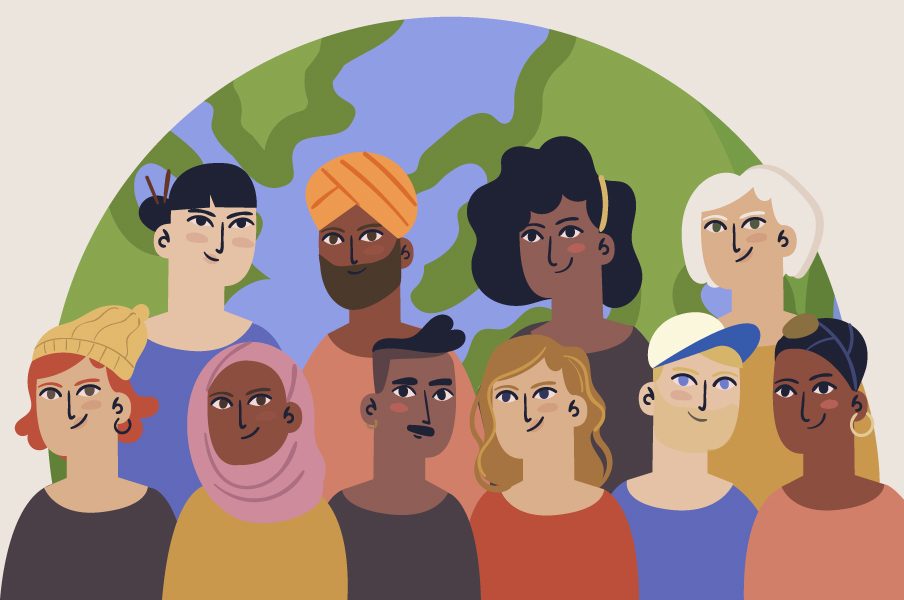Every year, April 7 marks the global celebration of World Health Day. Since 1950, World Health Day has been celebrated to bring awareness to a specific health theme and bring global attention to an area of concern for the World Health Organization.
This year, the theme for World Health Day is “Building a fairer, healthier world for everyone.” This year’s theme is significant given the increase in poverty and social injustices and the detrimental impact that COVID has had on communities worldwide. By eliminating health inequities, we can get on the road again to building a safe, healthy, and just global community.
One of the best parts about World Health Day is that you can celebrate no matter where you are. If you are struggling to come up with ideas to celebrate World Health Day, here are our seven essential tips for building a fairer and healthier world for everyone:
1. Donate to a nonprofit organization
Nonprofit organizations rely on various kinds of donations, including in-kind donations, monetary donations, and volunteers that donate their time or other essential resources. In honour of this year’s World Health Day theme of creating a fairer and healthier world, look to donate your time, money, or resources to a nonprofit that is promoting justice or health.
Some organizations that might interest you include your local ACLU chapter, organizations related to health issues that are important to you, such as the Canadian Diabetes Association or Canadian Heart Association, and organizations promoting international health and justice, such as Amnesty International or the United Nations Foundation. You can also visit websites such as VolunteerMatch or Idealist to view volunteer opportunities in your area.
2. Promote and model healthy lifestyle choices
Making healthy lifestyle choices, such as eating healthy, exercising, and visiting the doctor, can be challenging. By modelling healthy behaviours and encouraging others to make healthy choices, you can give people around you the motivation they need to get started. Keep in mind that some people might not have access to the money or resources it takes to make healthy choices, so connecting them to nonprofits or other organizations can also help!
3. Use your voice and platform to raise awareness
Using your voice to advocate and raise awareness can take many forms. Voting, promoting messages on social media, protesting, boycotting certain businesses, and voting with your dollar by buying from certain companies are all ways that you can use your voice, platform, and money to raise awareness for issues and causes that you care most about.
4. Do not forget about mental health
In advocating for health and justice, do not forget about mental health. Over 20 percent of adults in the US experience mental health illness, yet less than 50 percent of those adults get treatment. The stigma associated with mental health is one reason why people are afraid or hesitant to get treatment. Organizations such as the Canadian Alliance on Mental Illness and the Canadian Association for Suicide Prevention offer great resources to learn about mental health issues and advocate to end the stigma surrounding mental health.
5. Learn about health intersectionality
Intersectionality means taking into account many aspects of a person’s identity when talking about their experiences or, in this case, health. For example, your gender, location, race, and income may all impact your health outcomes. Issues of health and justice disproportionately impact certain communities.
For example, Black women are more likely to face maternal mortality, communities of colour and low-income communities are more likely to be affected by climate change, LGBT youth are more likely than their peers to be denied healthcare due to their identity, and women are more likely to be survivors of sexual assault.
Take the time to learn about communities that are different from yours and how you can best be an ally in their fight for health issues that uniquely impact their communities.
6. Support initiatives to overcome COVID and COVID-related disparities
While we have been fighting COVID for over a year now, the battle is unfortunately not quite over yet. To help mitigate the impacts of COVID, support organizations or initiatives that provide access to COVID-related healthcare (including stress management), benefit those that have lost income due to COVID, or support for those struggling through the impacts of COVID, such as parents now homeschooling their children.
For the first time in 20 years, and primarily due to COVID, global poverty levels are expected to rise. Still, by fighting COVID and its consequences, we can help make sure more people do not enter into poverty and lift those that are in poverty.
7. Thank a healthcare practitioner
It is a busy time, and we understand that you might only have a few moments to celebrate World Health Day. One quick and easy way to celebrate is to thank a healthcare worker or practitioner. This can be someone who works directly with patients, such as a doctor, nurse, physical therapist, occupational therapist, respiratory therapist, or social worker or even people who help keep doctor offices and hospitals running smoothly, such as administrative personnel, custodial staff, maintenance staff, or hospital food service workers. A verbal thanks, note, gift card, or a small token of appreciation can go a long way!
Now that you are aware of World Health Day, the 2021 mission to build a fairer and healthier world for everyone, and some ideas on how to get started, it is up to you! Every person can help to reach this goal. It does not take a medical expert to make a change. With COVID still impacting much of the world, there is no better time to join the fight for a safe, just, healthy, global community!










